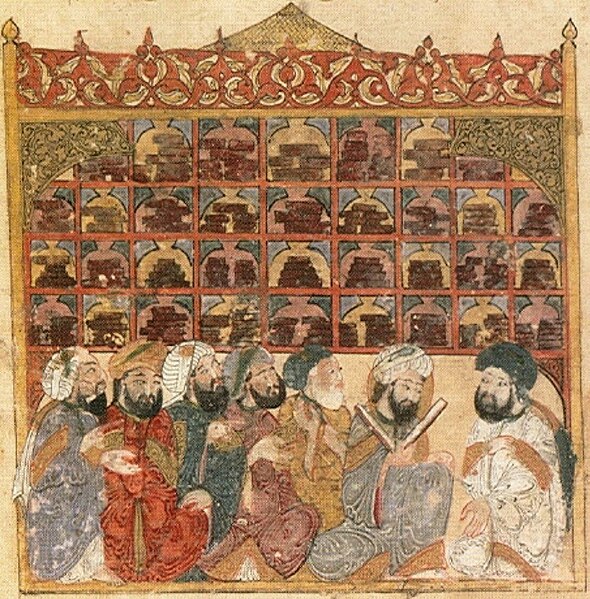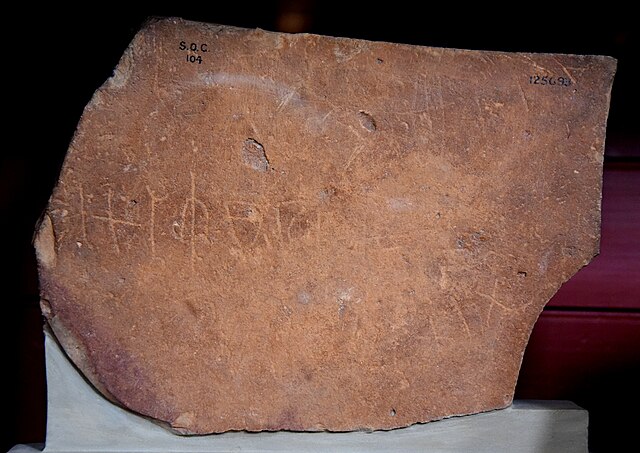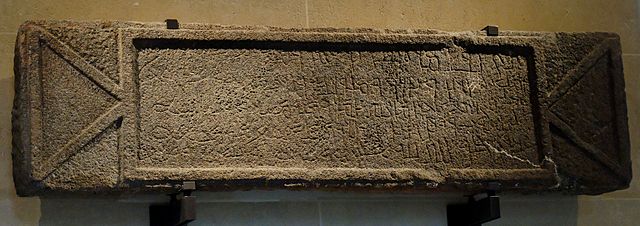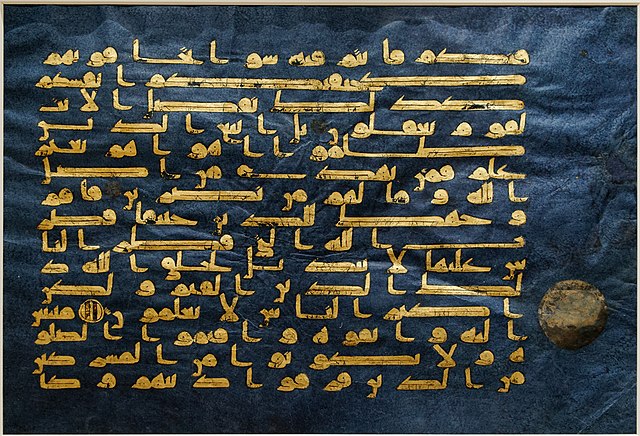The House of Wisdom, also known as the Grand Library of Baghdad, was believed to be a major Abbasid-era public academy and intellectual center in Baghdad. In popular reference, it acted as one of the world's largest public libraries during the Islamic Golden Age, and was founded either as a library for the collections of the fifth Abbasid caliph Harun al-Rashid in the late 8th century or as a private collection of the second Abbasid caliph al-Mansur to house rare books and collections of poetry in the Arabic and Persian language. During the reign of the seventh Abbasid caliph al-Ma'mun, it was turned into a public academy and a library.
Scholars at the Abbasid library (Maqamat al-Hariri) Illustration by Yahya ibn Mahmud al-Wasiti, 1237
The earliest scientific manuscripts originated in the Abbasid era
Physicians employing a surgical method. From Şerafeddin Sabuncuoğlu's Imperial Surgery (1465)
Hulagu Khan's siege of Baghdad (1258)
Arabic is a Central Semitic language of the Afroasiatic language family spoken primarily in the Arab world. The ISO assigns language codes to 32 varieties of Arabic, including its standard form of Literary Arabic, known as Modern Standard Arabic, which is derived from Classical Arabic. This distinction exists primarily among Western linguists; Arabic speakers themselves generally do not distinguish between Modern Standard Arabic and Classical Arabic, but rather refer to both as al-ʿarabiyyatu l-fuṣḥā or simply al-fuṣḥā (اَلْفُصْحَىٰ).
Safaitic inscription
The Namara inscription, a sample of Nabataean script, considered a direct precursor of Arabic script.
Arabic from the Quran in the old Hijazi dialect (Hijazi script, 7th century AD)
The Qur'an has served and continues to serve as a fundamental reference for Arabic. (Maghrebi Kufic script, Blue Qur'an, 9th–10th century)








